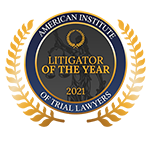Revocable trusts are often an important part of estate plans in Georgia because, among other advantages, they avoid the cost, publicity and delay of the probate process. During the life of the person who makes the trust, called the settlor, it allows for the estate to be managed with or without a third party. When the settlor dies, a revocable trust can act as a substitute for a will by providing direction as to the disposition of property.
Some legal decisions and developments have had an impact on the rules for third-party trustees with regard to contingent beneficiaries. The trustee of a revocable trust should use caution before heeding the instructions of the settlor if those instructions could be seen as contrary to trust terms. In cases where the settlor has diminished capacity, the trustee should determine what rights, if any, the contingent beneficiaries have. It is possible that the trust itself eliminates the rights of contingent remainder beneficiaries in the event of incapacity of the settlor.
In some cases, the applicable laws will grant contingent beneficiaries certain rights on the incapacity of the settlor, so trustees should compare the effect of such laws and the provisions of the trust instrument. When in doubt, it is a good idea for the trustee to obtain releases from contingent beneficiaries prior to following the settlor’s instructions.
It can be complicated for people in Georgia to set up estate plans that incorporate their wishes and minimize stress on loved ones. An attorney who has experience in trust and estate planning might be able to help by examining the facts of the situation and suggesting revocable trusts or other planning instruments to meet the client’s needs and goals.

















